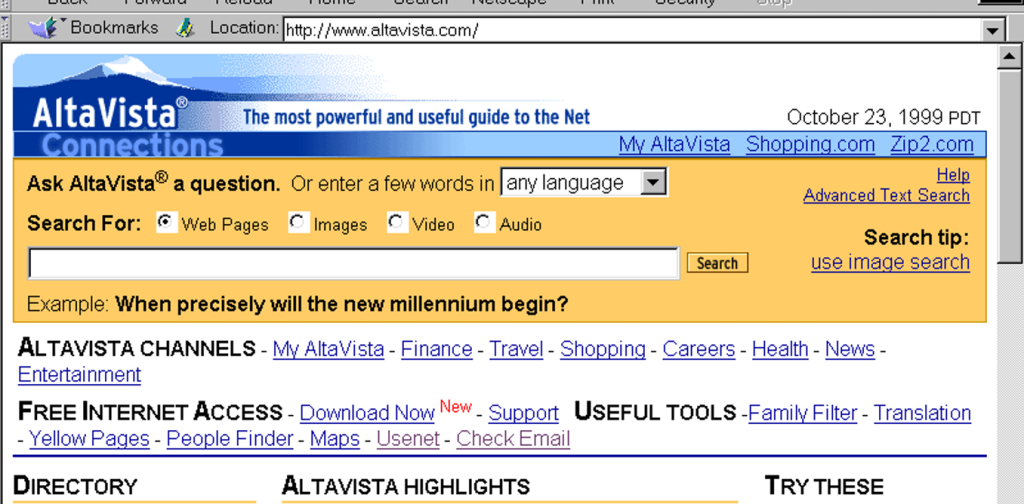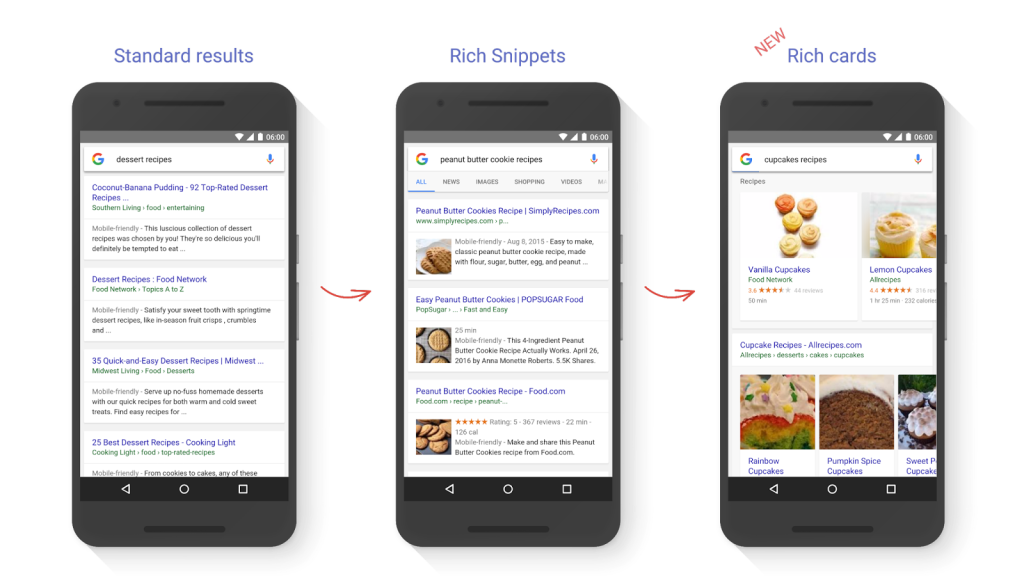How do I get my site onto Google?

93% of all buying decisions start with an online search. And the vast majority of searches are conducted using Google.
If you’re in business then, it’s obvious that your company has to appear on there.
Read Time: 10 minutes
The key to receiving traffic through Google is to gain a first-page ranking. To be in the top 10 results. This is because 91.5% of traffic goes to websites that appear on the first page.
But sometimes being in the Top 10 isn’t even good enough.
Think about it. Are you more likely to click on the first search result or the tenth search result?
- Position #1 gets you 32.5% of the traffic
- Position #2 gets you 17.6% of the traffic
- Position #3 gets you 11.4% of the traffic
- But position #10 gets you just 2.4% of the traffic
Getting the highest Search Engine Results Position (SERP) is the key to getting the most traffic. And getting the most traffic is key to influencing your audience’s buying decisions.
So, we understand being on Google is incredibly valuable for your business – but how exactly do you get your site onto Google?
The quick answer: Unless you’ve gone and done something incredibly drastically wrong (like having a ‘no-index’ setting on your entire site), then you’re probably already on Google.
The problem is, you probably have a crappy SERP (Search Engine Results Position) score and you’re stuck down there on Page 35. So, you, or anyone else, never see your site.
You’ll want to improve that.
Unfortunately, there’s no quick answer or quick fix to doing it. You’re playing the long game now.
To get a better understanding, it’s a good idea to really learn what Google is up to. Understanding how Google thinks means that you can get on the same page as them. And getting on the same page as them will guide you in what actions you take.
Ok, let’s get started and explore the following areas:
- What is Google?
- How does Google work?
- Understanding Google’s aim/purpose/business model
- How do you get Google to notice your site?
- What about keywords?
- How quickly will your site show on Google?
- What about the future?
1. So, let’s get to basics – What is Google?
Google is a massive technological giant that weaves into our lives in many ways.
They’re an advertising platform, a software development company (through Chrome and Android). They make mobile phones, laptops (Chromebooks) and home assistants. It’s hard in these modern days to actually not come into contact with Google.
But, for today, we’re going to concentrate on Google’s original purpose – they are a search engine.
For those lucky enough to remember the early days of the internet, if you wanted to find something on the web, you had to know the website address.
Heck! I even remember watching TV and scribbling down the long, unwavering website addresses on a piece of paper.
Until, one day, came the birth of the search engine.
These beautiful places allowed us to type in what we wanted to find and – voila! – it’s there!
In the early days there was a whole host of different search engines to choose from; Infoseek, Ask Jeeves, Excite, AltaVista. But in 1998 Google was born. And it changed the world.

Alta Vista – an early search engine.,
Google eventually went ahead and won the search engine war. Concentrating on User Experience, taking a different approach to advertise (even having a non-monetised approach in the early days) and having superior algorithm technology.
These points allowed Google to take a very large market share – ultimately dominating how we use and interact with the internet today.

Google in Beta stage 1998 – notice how simpler the design is compared to Alta Vista.
2. But how does Google actually work?
How Google gives us the results we want is an incredibly complex feat.
There are hundreds, if not thousands, of different factors taken into account to give you the result you want.
And, like any good magician, they keep their tricks a secret.
(Thanks, guys! Really appreciate it…)
In fact, half of our job when working with SEO is gathering as much knowledge as we can. Then using that knowledge to essentially “guess” how Google does these seemingly magical tricks.
You’ve probably heard this mentioned before as “Google’s Algorithm”.
So, how does Google actually work? – well… we don’t really know. We can guess and draw conclusions on what some of the hundreds/thousands of factors are – but we will never know for sure.
But wait!
We can actually tell you how Google works in a technical manner.
Surprisingly, it’s incredibly simple.
It all starts with a bunch of ‘spiders’ that Google sends out to ‘crawl’ the web.
Spiders are little automated programs that scour the internet for information. When they land on your website, they’ll take notes about it. They’ll read the titles and text on each page to understand more about who you are, what you do and who might be interested in your services.
It’s important to note that Spiders are also blind – they can’t see images. So, they take cues from things like alternative tags on images, keywords, navigation links to get an understanding of what you’re about.
The Spiders’ findings are then consolidated and stored (or as we say – indexed) in Google’s databases. But what if two sites have very similar information in them?
Well, that’s where links become valuable.
Links are like votes. The more votes you have, the more popular you are. The more popular you are, the more you’re considered to have authority on a subject. The more authority you have on a subject, the more relevant your website is. The more relevant your website is, the higher you appear on results.
More links = better search position.
Note: we definitely should warn you that this is a grossly oversimplified explanation – there is more to this. Links from certain websites are ‘worth’ more than links from other websites. In some cases, links from ‘bad’ websites can ultimately damage your position. Always approach link-building with caution.
This method of link authority is influenced by academic papers, where they are often ‘ranked’ based on the number of citations a paper received. The more times an academic paper was referenced, the more authoritative they were considered on that particular topic. This is, in principle, how Google sees links to your website.
4. What is Google’s aim?
This is surprisingly easy to understand. Yet so few people even bother to focus on it. Which is a bit silly really. Because once you figure out what Google is trying to do, you suddenly realise what you need to do to keep them happy.
And keeping Google happy is important – a happy Google means better search results for you!
Understanding Google’s aim can then influence how your website works. What it looks like. What information you put in it. How your copy is structured. How your link building activity is conducted – basically how you do pretty much everything to promote your business online.
Ultimately, Google is a business. They need people to use them. Make sense, right?
But, how do they get people to use them and not Bing for instance?
By delivering accurate and relevant information to people based on their search results.
When you do a search, Google’s aim is to give you the answer you’re looking for straight away. They’re hoping the answer you need is the first link.
Your aim is to be as relevant to your audience as possible.
This, therefore, means your website needs to be focussed on your users, not you. It needs to supply information that they’re seeking (FAQ’s are great for this!). The copy doesn’t have to be filled with hyperboles and exaggerations. Focus on being relevant. Do this, and you make Google happy.
5. How do I get Google to notice my site?
One of the quickest and simplest ways to ensure that Google notices your website is to just tell them it exists.
You can do this in a few ways.
The first is to ensure your website has a full sitemap. You can typically check whether you’ve got one by visiting: https://yourwebsiteaddress.com/sitemap.xml
It’s also useful to include the addresses of your sitemap in a robot.txt file. The robot.txt file is the first thing a Google Spider will look at. It’ll tell the Spider whether it’s allowed to visit your website.
As well as what pages it’s not allowed to look at.
Secondly – get your website onto Google Search Console.
This useful platform allows you to see what information Google stores on your website and any errors they’ve come across. Google Search Console also allows you to see the performance of your website in regards to searches it appears for, how many clicks it gets and what position it typically appears at.
Google Search Console can also let you ‘talk’ to Google. When you create or edit a page, simply head over to Google Search Console. There you can quickly tell Google to inspect that webpage.
This will also allow you to request Google to index the page. This saves time not having to wait for Google’s Spiders to eventually decide to crawl your page and find it has been updated (which can take weeks or even months to happen).
That covers the basics of telling Google about your site.
But it is possible to tell Google more information about your site and products/services.
Advanced techniques include adding Schema into your website code. Schema is a method of structuring data on your website to allow Google’s Spiders to better understand the information on your website. For example, you can structure FAQs in a way that Google instantly recognises that they’re FAQs.
Structuring your data with Schema has the benefit of allowing Google to show your website in Rich Cards. These are content that displays in an engaging and visual format on search results. They appear as Knowledge Cards, ‘People also ask’, Carousels, Reviews and plenty more!

The evolution of search results on a mobile device.
6. What about Keywords?
You have most definitely of heard of keywords. It’s something that SEO specialists and marketing people have been banging on about for years.
There’s a problem with this though.
This phrase, ‘keywords’, has been so overused that its importance has been overblown.
There are hundreds, if not thousands, of factors that influence search positions. Keywords are just one factor.
Now, don’t get me wrong. Keywords are important. They indicate what a page is about.
But what is often forgotten about is keyword semantics.
These are the words around your keywords. Words that are relevant to your keywords
For example, if you’re looking to increase the SEO presence of a bakery, you might look at including semantic keywords such as;
- Cake
- Birthday
- Fresh
- Oven
- Hand-made
…And there’s that word again – relevant.
You see, you need to constantly keep in mind that aim of being relevant.
When the copy on your website is relevant, you’ll naturally insert keywords and their semantic words. All this helps tell Google what you’re about and helps them index you correctly in their databases.
7. How quickly will my site show on Google?
Ha! Right… This question.
This one is tricky to answer.
The first thing to remember – good SEO takes time. There is no such thing as instant results.
It can take several months for Google to see changes to your website – remember this!
In one case, we saw Google take months to fully index a brand-new site.
At the same time though, we’ve seen changes be implemented within hours for other clients.
Google noticing your changes can depend on your industry sector, your business location and many other factors. These factors impact on how quickly Google may decide to crawl your website.
The strongest results from SEO come over time. It comes from trial. Error. And patience. But it is definitely a result worth having. Achieving top positions can dramatically increase your success.
As mentioned earlier, having that coveted number 1 spot on Google gets you an average of 32.5% of traffic. Number 2? 17.6%. That’s right. The amount of traffic you get on average almost halves by dropping to the second position.
The annoying thing with SEO though is that it’s a continuous game that you constantly have to play. Once you’ve reached the top, you need to ensure you don’t get knocked off.
But that does also have its advantages. If you’re constantly working on your SEO, then that means you’ll be ready for…
8. The future: Where’s Google going?
Google is constantly trying to make search results as relevant as possible for its users.
Additionally, Google is concentrated on two future growth areas;
- Mobile Search – i.e. serving up results made on a mobile device. Ways this could manifest itself are location-based results (for example, nearest coffee shop) and through information being served up straight from the results page (i.e. knowledge cards giving you answers to questions so you don’t have to click onto a website).
- Voice Search/Google Assistant/Google Home – it’s important to recognise that you typically only have one result on these platforms. In these cases, being first is vital. The types of searches matter a lot too – questions or ‘how-to’ are more likely to be asked.
Google is moving towards these directions. They’ve said as much so. They’ve invested heavily into it. To ignore it will be foolish.
But how does this affect your website showing on Google?
Well, have you noticed anything particular with Google result pages recently? All the information is there – right in front of you.
You can get answers from websites without even clicking onto the website.
You can get a business address or phone number – Heck! On a mobile, you can even call them directly from the search results page.
Google is moving away from delivering relevant links to their users and towards delivering relevant information to them.
So…
How do I get my site onto Google?
Simply put – be relevant. It’s what Google wants. It’s what Google expects.
The more relevant you are to what people are seeking, the higher chance you are to be seen as an authority on the matter.
If you need any assistance with your website listings on Google, get in touch with our team who will be more than happy to help.
Ready to get started?
Our team of creatives work together in a wide range of disciplines, meaning we’re able to craft beautifully bespoke creative that will produce results you’ll love!


